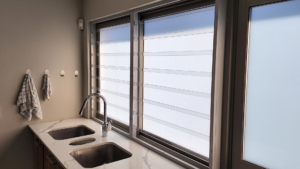When it comes to choosing an alarm system to secure your home or company, you have a few alternatives. Each sort of system has advantages and disadvantages, and no single solution will work best for all properties. When making your decision, make sure to analyse your alternatives and select the alarm system with features that meet your specific requirements. There are four types of alarm systems to consider in general.
Benefits of Alarm Systems
Alarm systems are one of the simplest and most dependable security measures you can put in place to protect your home or company. They are intended to detect anomalies, discourage potential threats, and warn authorities so that they may respond promptly and efficiently.
Alarm systems aren’t always used to detect intruders. Many are also capable of detecting fires and/or environmental risks. If you’re considering purchasing a home alarm system, consider the following advantages.
Prevent crime
Homes without home security systems are roughly three times more likely to be burglarized. Many robbers are put off by the fact that a property has an alarm system. When there are numerous homes with alarms in a neighbourhood, most criminals will avoid them entirely.
Assist in the protection of possessions
We’ve all heard of neighbours who have had their homes broken into and lost valuable jewellery, electronics, and other valuables. When you lose objects of personal significance that cannot be replaced, such as family china or wedding photos, the theft becomes exponentially worse.
Assist you in keeping track of your children and pets
When you’re at work or out of town, you may use video surveillance to keep an eye on your children and pets to ensure they’re safe and acting appropriately. You’ll know that the household is working well even when you’re not there, from securing the doors at night to ensuring that the cat didn’t get shut in the pantry.
Give you peace of mind
The sense of security and general peace of mind that a home alarm system provides is arguably its most important benefit. When you don’t have to worry about your valued goods or loved ones, you have more energy to focus on other responsibilities, helping you to be a more productive, healthy, and focused individual.
Security Alarm Systems to Consider
There are numerous sorts of alarm systems that you may install in your house or company, and each form of alarm system has subcategories. Continue reading to learn about the various types of alarm systems and which one might be the best for your property.
1. Wired Alarm Systems
A wired alarm system is linked to a landline in your building. Every component of the system must be hard-wired for the system to function. This ensures a continuous and uninterrupted connection. Wired systems are typically quite dependable, and they do not require high-speed internet or new batteries to function. They perform well in huge areas where the system is dispersed across a long distance. You don’t have to worry about the distance between sensors and a control panel when you use hard wiring.
A disadvantage of a wired alarm system is that if the wires become broken or cut, the system will no longer function. They will also stop working if the electricity goes out in your building. Furthermore, because wires must be extended throughout your building, wired systems can be complex and costly to install.
2. Wireless Alarm Systems
A wireless alarm system is a security system that does not use a landline in your building and instead operates via radio frequencies. Wireless systems employ sensors that, if tripped, can generate an alarm. If an alarm is required, the sensors employ radio frequency to transmit a signal to the system’s control panel.
One of the primary benefits of wireless alarm systems, and one of the reasons they are so popular today, is the ability to connect to your system remotely. Of course, you’ll need to change batteries in a wireless system regularly, and it’s critical to maintain a good signal. The maximum distance between the sensors and the control panel must not be exceeded to maintain a robust signal. Since this can be an issue in larger buildings, wireless systems are frequently preferable for smaller sites.
3. Unmonitored Alarm Systems
Unmonitored alarm systems are not monitored remotely or at a control centre. Furthermore, they do not notify authorities of the alarm. An unmonitored system, on the other hand, sounds a local alarm when necessary and relies on individuals in the vicinity to hear the alarm. In an unmonitored system, alerts can include beeps, buzzers, lights, and voice alarms.
Unmonitored systems are often less expensive than monitored systems, but they do not give the same level of security as a system that is monitored 24 hours a day, seven days a week. If the alarm is tripped, an unmonitored system may send an alert to an app on your phone. Then you can notify the authorities or respond to the alarm yourself. This is a good tool, but it requires you to constantly monitor your property. An unmonitored alarm system is not always the ideal option because it is not as secure as a monitored one. However, it is less expensive than a monitored system because there is no monthly subscription for monitoring, so it is a viable alternative if you are on a tight budget.
4. Monitored Alarm Systems
A security crew monitors a monitored alarm system. If the alarm goes off, they are promptly notified and begin taking action. Monitoring systems will also notify you if the alarm is tripped. When the monitoring centre receives notification of an alarm, they usually contact you and notify the authorities. They can see what type of alarm was activated and dispatch first responders, whether they are firefighters, police, or medical staff, swiftly.
Monitoring systems can provide you with peace of mind that your building will be taken care of even if you are not present if an alert is activated. Monitored systems are typically more expensive because you are paying for that crew to constantly monitor your property. To keep your monitoring service, you’ll usually have to pay a monthly charge.
See the 5 Most Common Causes of False Security Alarms and How to Prevent Them



